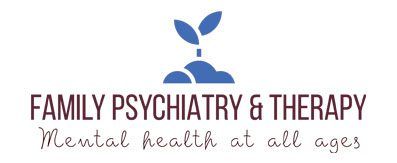Post-Traumatic Stress Disorder (PTSD)
Post-traumatic stress disorder (PTSD) is a mental health condition that’s triggered by a terrifying event, either experiencing it or witnessing it. When in danger, it’s natural to feel afraid. This fear triggers many split-second changes in the body to prepare to defend against the danger or to avoid it. This “fight-or-flight” response is a healthy reaction meant to protect a person from harm. But in post-traumatic stress disorder (PTSD), this reaction is changed or damaged. People who have PTSD may feel stressed or frightened even when they’re no longer in danger.
Symptoms
Many people who go through traumatic events have difficulty adjusting and coping for a while, but with time and good self-care, they usually get better. If symptoms get worse within months or even years and interfere with your functioning, you may have PTSD. Symptoms or intrusive memories may include:
- flashbacks and reliving the traumatic event as if it were happening again
- nightmares and Upsetting dreams about the traumatic event
- severe anxiety or emotional distress or physical reactions to something that reminds you of the event
- uncontrollable thoughts about the event
- Recurrent, unwanted distressing memories of the traumatic event
Treatment
There are several types of psychotherapy used to treat children and adults with PTSD. Some include cognitive therapy, exposure therapy, and eye movement desensitization and reprocessing. All these approaches can help you gain control of lasting fear after a traumatic event.
Several types of medications can also help treat PTSD. Some medications include antidepressants which can improve sleep problems and concentration, anti-anxiety medications to help improve anxiety and stress, and Prazosin which can surprise insomnia or recurring nightmares.
You and your doctor can work together to figure out the best treatment, with the fewest side effects, for your symptoms and situation. You may see an improvement in your mood and other symptoms within a few weeks.
Contact Us
If you have disturbing thoughts and feelings about a traumatic event for more than a month, if they’re severe, or if you feel you’re having trouble getting your life back under control, contact our office today at 201-977-2889.
In preparing for your first appointment, you can make a helpful list of the following:
- any symptoms you’ve been experiencing, and for how long.
- key personal information, especially events or experiences, even in your distant past, that have made you feel intense fear, helplessness or horror.
- your medical information, including other physical or mental health conditions with which you’ve been diagnosed.


